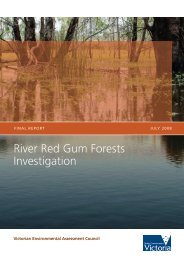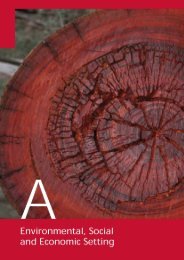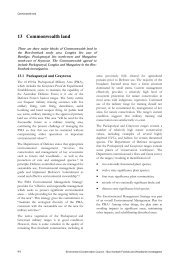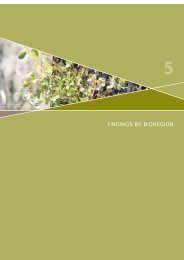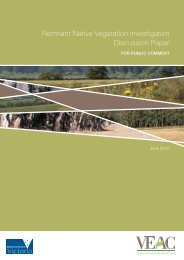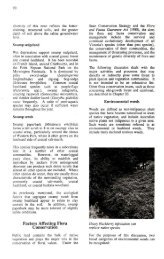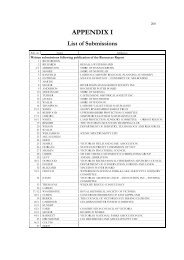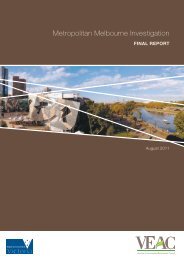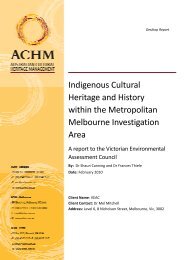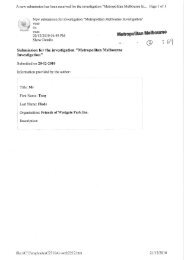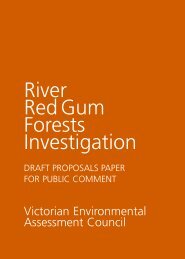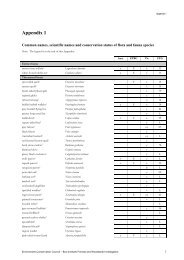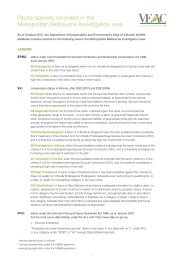Metropolitan Melbourne Investigation Discussion Paper - Victorian ...
Metropolitan Melbourne Investigation Discussion Paper - Victorian ...
Metropolitan Melbourne Investigation Discussion Paper - Victorian ...
Create successful ePaper yourself
Turn your PDF publications into a flip-book with our unique Google optimized e-Paper software.
Table 4.10<br />
Stock grazing licences on Crown land in the investigation area<br />
Source: data supplied by Department of Sustainability and Environment (2008)<br />
GRAZING LICENCE TYPE NO. LICENCES LICENCE AREA (HA) AVERAGE AREA (HA)<br />
Unused government road licence 477 629 1.3<br />
Crown land water frontage 175 298 1.7<br />
Broad acre 25 138 5.5<br />
Total 677 1,065<br />
Grazing licences do not confer exclusive use of public<br />
land to the licence holder. Certain types of recreation are<br />
permitted on the licensed area such as walking, fi shing<br />
and nature appreciation. Licence conditions for Crown<br />
land stream frontages typically specify that stiles or gates<br />
are required in fences that cross the licensed land in order<br />
to provide for continued recreation access. However,<br />
members of the public are not permitted to camp, light<br />
fi res or carry fi rearms on the licensed land.<br />
Public authorities may also undertake commercial<br />
arrangements for grazing. These are not documented<br />
in detail here and are subject to change and contract<br />
arrangements entered into by government authorities.<br />
Of these the most notable grazing enterprise is that<br />
operated by <strong>Melbourne</strong> Water at the Western Treatment<br />
Plant. Initially this compatible use was established in the<br />
early 1900s where stock grazed on irrigated paddocks.<br />
Currently there are up to 15,000 cattle and 40,000<br />
sheep on over 8,500 hectares (including areas of public<br />
land outside the investigation area) making this a major<br />
commercial use of public land. As sewage treatment<br />
processes have modernised, fl ood irrigation has been<br />
replaced with settling ponds and production of high<br />
quality re-cycled water — a by-product in high demand<br />
for agricultural and horticultural use in the Werribee district<br />
(see section 4.7.3).<br />
87



